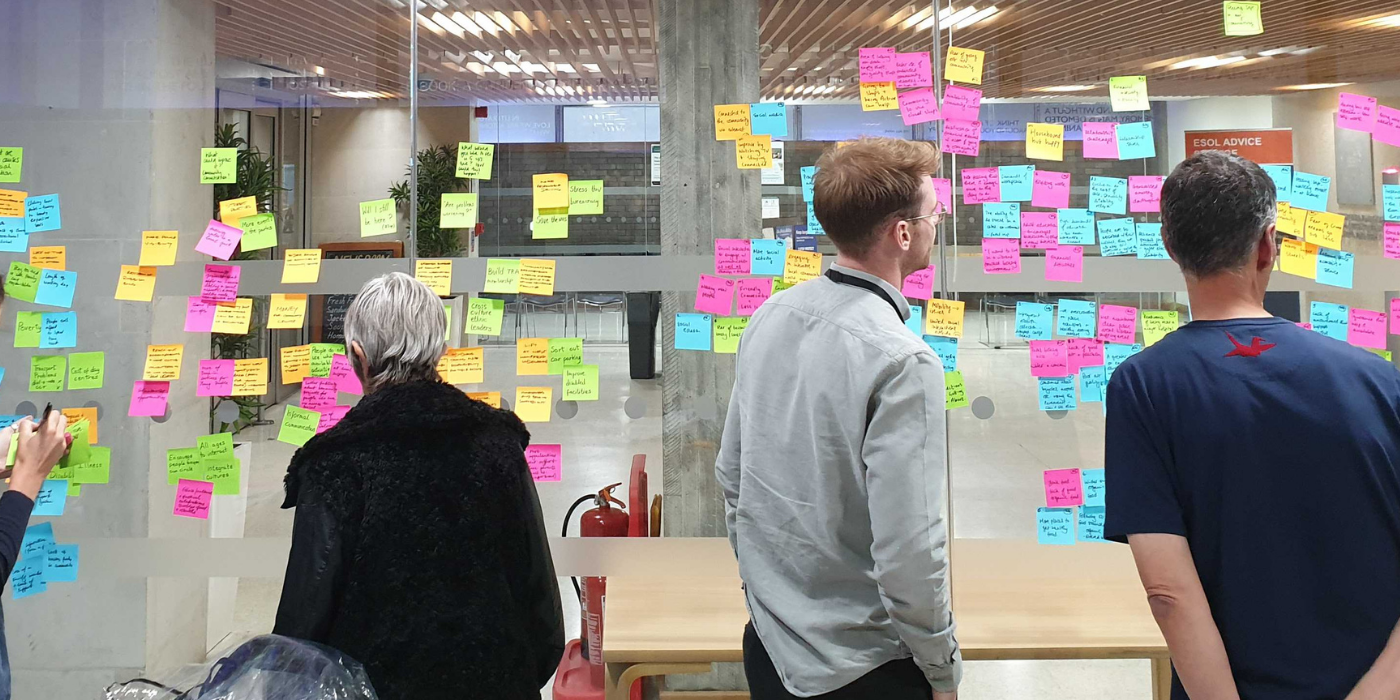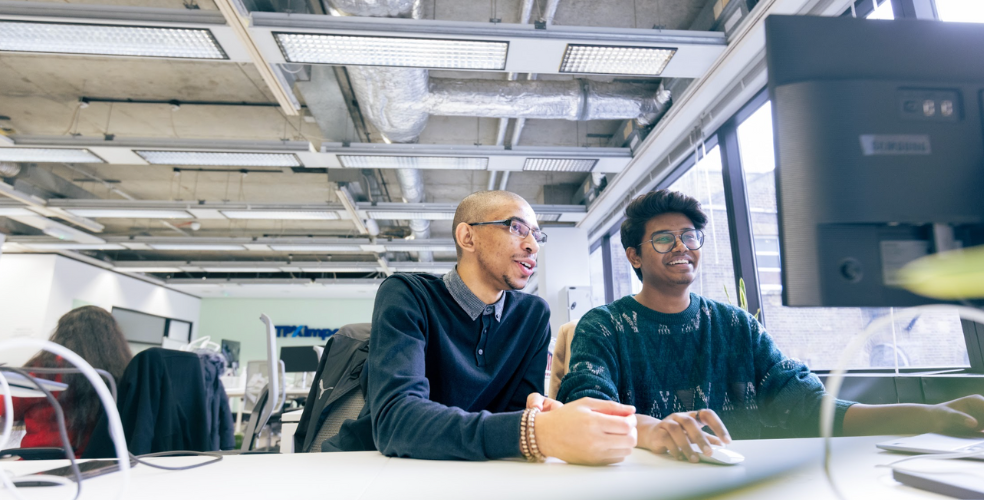Far more than being education providers, Further Education Colleges (FECs) are becoming increasingly important in our innovation ecosystems. These have an important role to play in supporting local growth, making them well-positioned to increase the capacity and capability of local businesses.
Through Ignite Labs, we helped colleges discover how they could use their existing resources and facilities to support local businesses in their innovation journeys.
The programme aimed to show how a user-centred approach to innovation can set organisations up for success by helping shape value propositions and offerings to businesses. This wasn't simply about introducing new content, it was about establishing entirely new relationships between colleges and their business communities.
Building innovation capabilities through design
We designed three interactive learning workshops for the cohort that interlinked with sessions running between them with the Ignite innovation team, to make sure they had a fluid experience.
In our first session, we introduced design thinking fundamentals - acknowledging that double diamond is just one of many design methodologies teams might use. Participants explored research methods, bias awareness, ethics considerations, and problem reframing, shifting their perspective from solution-first to understanding user needs.
Session two expanded into ideation techniques and consequence scanning, helping teams evaluate potential impacts of their innovations before implementation. The creative energy built as colleges began applying these methods to real challenges they were facing.
Our final workshop focused on prototyping, testing, and effective pitching techniques. Drawing from TPXimpact's extensive project experience, we shared practical applications that helped participants understand how design thinking translates into viable solutions within their specific contexts.
Showcasing transformation
The programme culminated in a pitch day at the Lowry theatre in Salford Quays where we witnessed not just the fruits of our workshops, but the remarkable depth of skill and passion the colleges brought to this new challenge. The enthusiasm was unmistakable as teams presented their innovations with confidence and conviction that belied how recently they'd been introduced to these methodologies.
The pitches revealed a broad spectrum of approaches to innovation, from detailed plans for advanced manufacturing spaces supporting local artisans, to sophisticated quantum computing course frameworks and inventive applications for hologram technology. The colleges leveraged their existing technical strengths while applying entirely new approaches to business support.
Each pitch demonstrated creative thinking about how educational institutions could support businesses in unexpected ways. Rather than simply offering traditional training, they envisioned collaborative innovation spaces, technical resource sharing, and developmental partnerships that showed genuine originality in approach.
Most impressively, every presentation showed how they'd engaged potential users throughout their process. Teams described their research methods, showed us how they'd tested and refined ideas based on feedback, and outlined clear plans for scaling their innovations. The incorporation of design principles throughout these presentations, from problem definition to solution development, demonstrated how thoroughly the colleges had embraced this new approach, transforming their thinking about how to serve their business communities.
Building innovation ecosystems
The Ignite Labs programme positions colleges at the centre of local innovation ecosystems. By introducing design thinking methodologies to further education, we've helped establish foundations for a new relationship between these institutions and the businesses they serve. Colleges are now equipped to articulate a challenge, scope projects through structured innovation workshops, and build a competitive innovation proposal.
Looking forward
The true value of this programme lies in its lasting impact. These colleges now have practical tools to approach innovation through a user-centred lens, enhancing how they develop services for both students and business partners. We're proud to have contributed to this skills development journey alongside Innovate UK, and look forward to seeing how these institutions continue applying these approaches to transform education and business support in their communities.
If you are interested in training or running an internal academy to help build capability in your organisation please contact our Head of Learning Design, Tash Willcocks.
Our recent design blog posts
Transformation is for everyone. We love sharing our thoughts, approaches, learning and research all gained from the work we do.
-

What good design documentation looks like
Read blog post -

-

Naming services in complex situations
Read blog post -

Using inclusive research approaches with Blood Cancer UK
Read blog post

